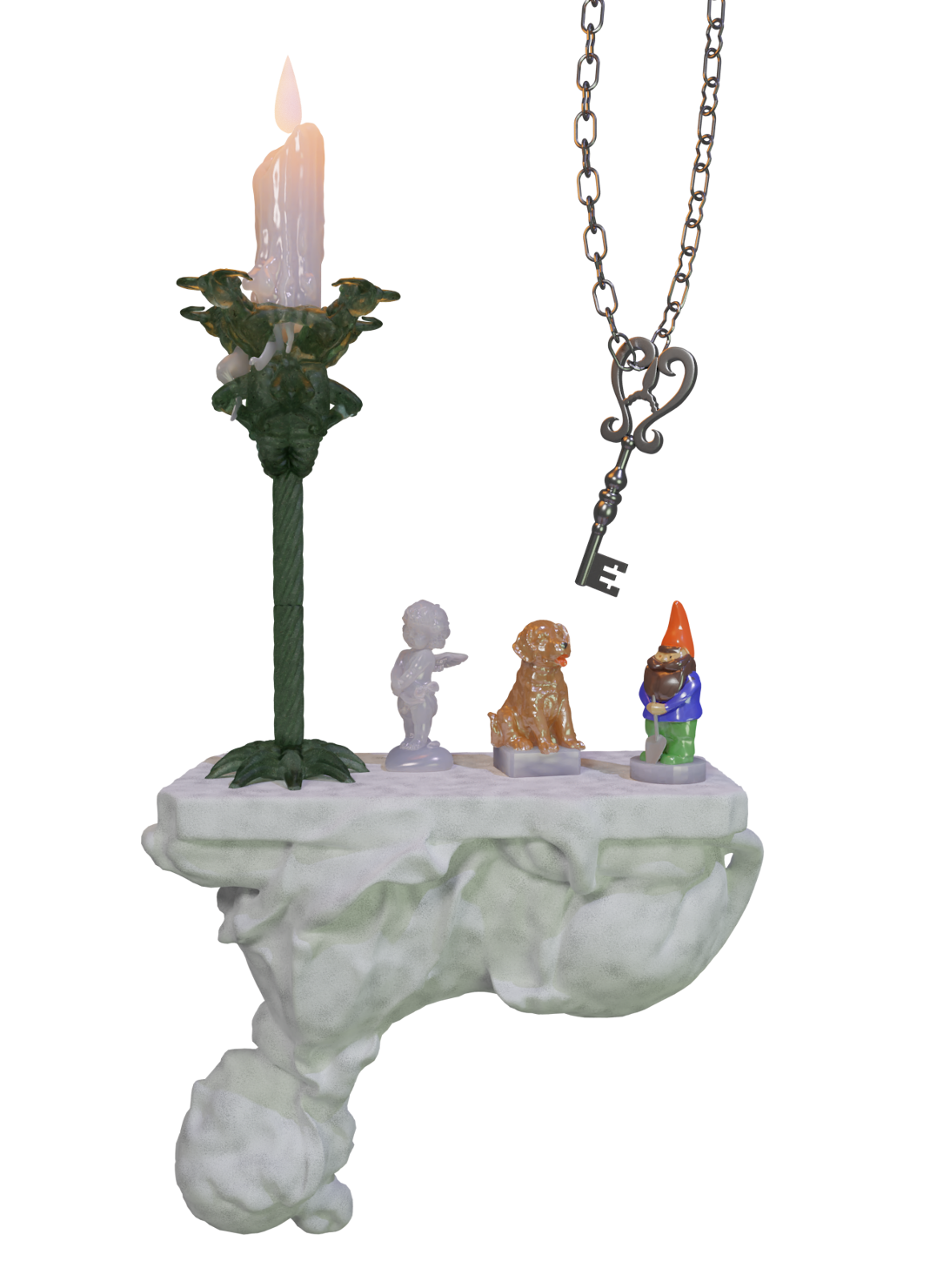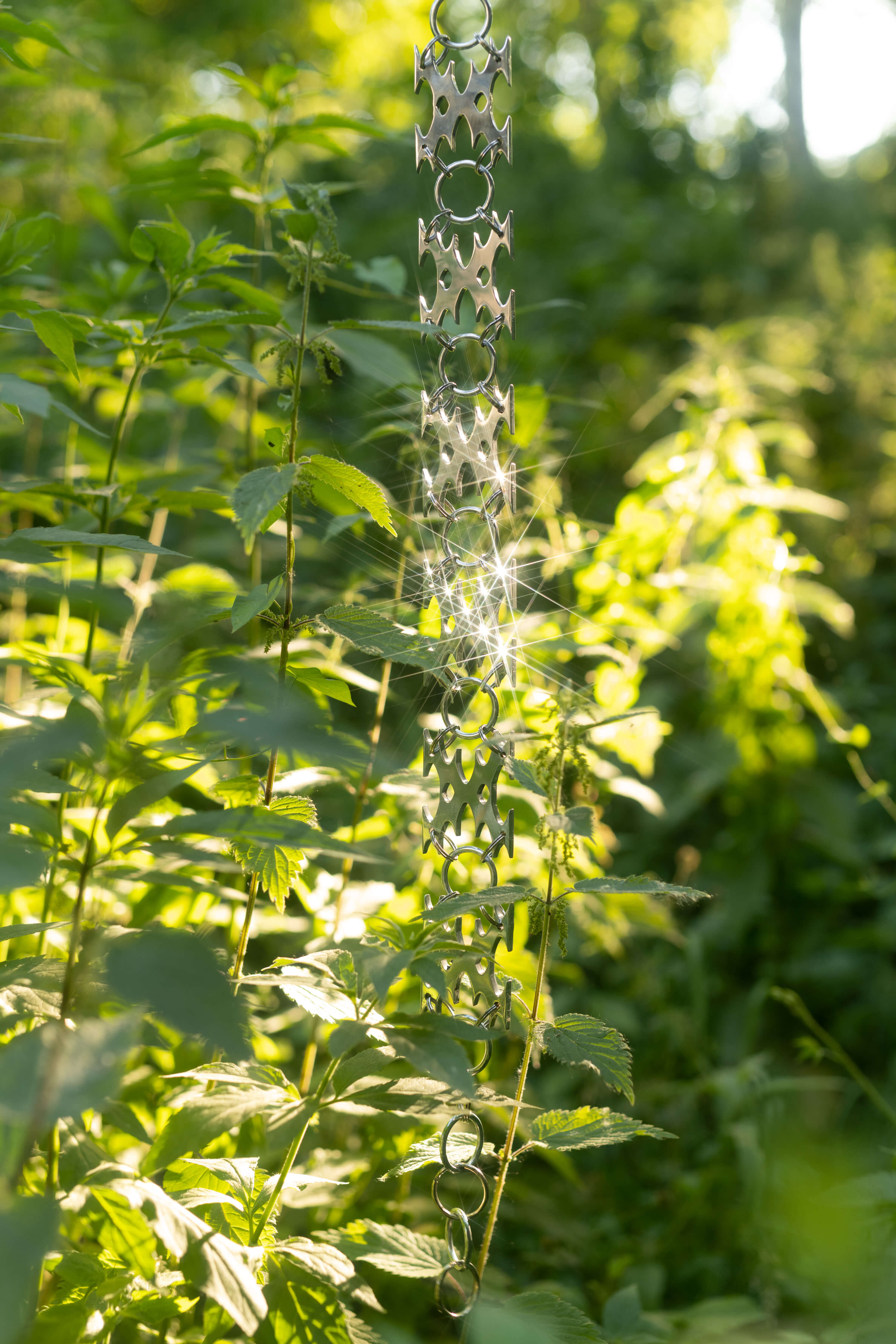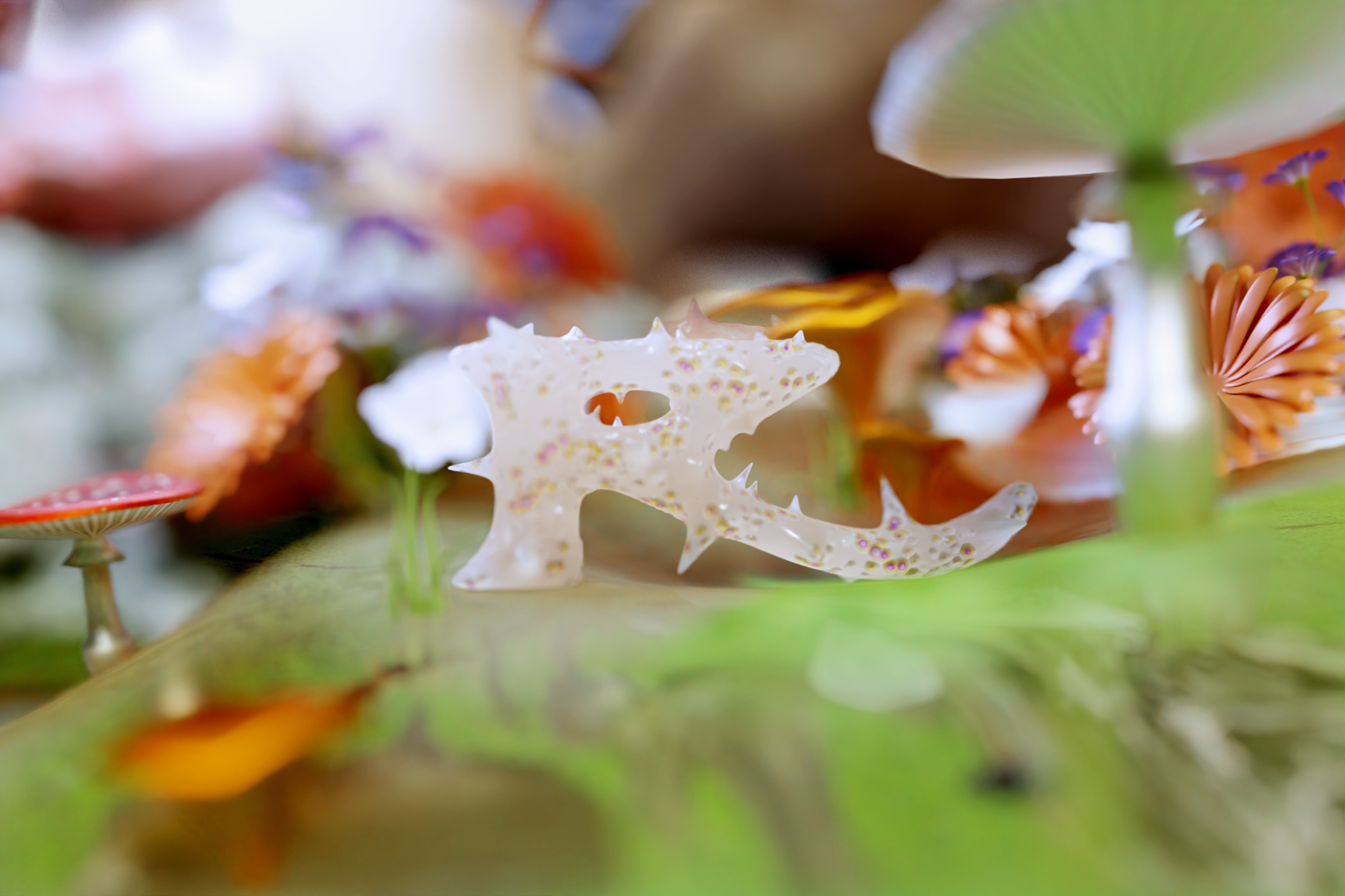

© Photography: J+F. Models: Mali and Bandido.
Sharpix

© Pauline Sesniac
Robbery
Sa peau jaune couvrait à peine le tissu des muscles et des artères ; ses cheveux étaient d’un noir brillant, et abondants ; ses dents d’une blancheur de nacre ; mais ces merveilles ne produisaient qu’un contraste plus horrible avec les yeux transparents, qui semblaient presque de la même couleur que les orbites d’un blanc terne qui les encadraient, que son teint parcheminé et ses lèvres droites et noires.
Les accidents variés de la vie ne sont pas aussi sujets au changement que les sentiments humains. Depuis près de deux ans, j’avais travaillé sans relâche dans le seul but de communiquer la vie à un corps inanimé. Je m’étais privé de repos et d’hygiène. Mon désir avait été d’une ardeur immodérée, et maintenant qu’il se trouvait réalisé, la beauté du rêve s’évanouissait, une horreur et un dégoût sans bornes m’emplissaient l’âme.
Incapable de supporter la vue de l’être que j’avais créé, je me précipitai hors de la pièce, et restai longtemps dans le même état d’esprit dans ma chambre, sans pouvoir goûter de sommeil. La lassitude finit par succéder à l’agitation dont j’avais auparavant souffert, et je me précipitai tout habillé sur mon lit, essayant de trouver un instant d’oubli. Mais ce fut en vain : je dormis, il est vrai, mais d’un sommeil troublé par les rêves les plus terribles. Je croyais voir Elizabeth, dans la fleur de sa santé, passer dans les rues d’Ingolstadt.
Délicieusement surpris, je l’embrassais ; mais à mon premier baiser sur ses lèvres, elles revêtaient la lividité de la mort ; ses traits paraissaient changer, et il me semblait tenir en mes bras le corps de ma mère morte ; un linceul l’enveloppait, et je vis les vers du tombeau ramper dans les plis du linceul. Je tressaillis et m’éveillai dans l’horreur ; une sueur froide me couvrait le front, mes dents claquaient, tous mes membres étaient convulsés : c’est alors qu’à la lumière incertaine et jaunâtre de la lune traversant les persiennes de ma fenêtre, j’aperçus le malheureux, le misérable monstre que j’avais créé. Il soulevait le rideau du lit ; et ses yeux, s’il est permis de les appeler ainsi, étaient fixés sur moi.
Ses mâchoires s’ouvraient, et il marmottait des sons inarticulés, en même temps qu’une grimace ridait ses joues. Peut-être parla-t-il, mais je n’entendis rien ; l’une de ses mains était tendue, apparemment pour me retenir, mais je m’échappai et me précipitai en bas. Je me réfugiai dans la cour de la maison que j’habitais, et j’y restai tout le reste de la nuit, faisant les cent pas dans l’agitation la plus grande, écoutant attentivement, guettant et craignant chaque son, comme s’il devait m’annoncer l’approche du cadavre démoniaque à qui j’avais donné la vie de façon si misérable.
Sa peau jaune couvrait à peine le tissu des muscles et des artères ; ses cheveux étaient d’un noir brillant, et abondants ; ses dents d’une blancheur de nacre ; mais ces merveilles ne produisaient qu’un contraste plus horrible avec les yeux transparents, qui semblaient presque de la même couleur que les orbites d’un blanc terne qui les encadraient, que son teint parcheminé et ses lèvres droites et noires.
Les accidents variés de la vie ne sont pas aussi sujets au changement que les sentiments humains. Depuis près de deux ans, j’avais travaillé sans relâche dans le seul but de communiquer la vie à un corps inanimé. Je m’étais privé de repos et d’hygiène. Mon désir avait été d’une ardeur immodérée, et maintenant qu’il se trouvait réalisé, la beauté du rêve s’évanouissait, une horreur et un dégoût sans bornes m’emplissaient l’âme.
Incapable de supporter la vue de l’être que j’avais créé, je me précipitai hors de la pièce, et restai longtemps dans le même état d’esprit dans ma chambre, sans pouvoir goûter de sommeil. La lassitude finit par succéder à l’agitation dont j’avais auparavant souffert, et je me précipitai tout habillé sur mon lit, essayant de trouver un instant d’oubli. Mais ce fut en vain : je dormis, il est vrai, mais d’un sommeil troublé par les rêves les plus terribles. Je croyais voir Elizabeth, dans la fleur de sa santé, passer dans les rues d’Ingolstadt.
Délicieusement surpris, je l’embrassais ; mais à mon premier baiser sur ses lèvres, elles revêtaient la lividité de la mort ; ses traits paraissaient changer, et il me semblait tenir en mes bras le corps de ma mère morte ; un linceul l’enveloppait, et je vis les vers du tombeau ramper dans les plis du linceul. Je tressaillis et m’éveillai dans l’horreur ; une sueur froide me couvrait le front, mes dents claquaient, tous mes membres étaient convulsés : c’est alors qu’à la lumière incertaine et jaunâtre de la lune traversant les persiennes de ma fenêtre, j’aperçus le malheureux, le misérable monstre que j’avais créé. Il soulevait le rideau du lit ; et ses yeux, s’il est permis de les appeler ainsi, étaient fixés sur moi.
Ses mâchoires s’ouvraient, et il marmottait des sons inarticulés, en même temps qu’une grimace ridait ses joues. Peut-être parla-t-il, mais je n’entendis rien ; l’une de ses mains était tendue, apparemment pour me retenir, mais je m’échappai et me précipitai en bas. Je me réfugiai dans la cour de la maison que j’habitais, et j’y restai tout le reste de la nuit, faisant les cent pas dans l’agitation la plus grande, écoutant attentivement, guettant et craignant chaque son, comme s’il devait m’annoncer l’approche du cadavre démoniaque à qui j’avais donné la vie de façon si misérable.


© Pauline Sesniac
Pico
A large rose-tree stood near the entrance of the garden: the roses growing on it were white, but there were three gardeners at it, busily painting them red. Alice thought this a very curious thing, and she went nearer to watch them, and just as she came up to them she heard one of them say, “Look out now, Five! Don’t go splashing paint over me like that!” “I couldn’t help it,” said Five, in a sulky tone; “Seven jogged my elbow.”
On which Seven looked up and said, “That’s right, Five! Always lay the blame on others!” “You’d better not talk!” said Five. “I heard the Queen say only yesterday you deserved to be beheaded!” “What for?” said the one who had spoken first. “That’s none of your business, Two!” said Seven. “Yes, it is his business!” said Five, “and I’ll tell him—it was for bringing the cook tulip-roots instead of onions.” Seven flung down his brush, and had just begun “Well, of all the unjust things—” when his eye chanced to fall upon Alice, as she stood watching them, and he checked himself suddenly: the others looked round also, and all of them bowed low.
“Would you tell me,” said Alice, a little timidly, “why you are painting those roses?” Five and Seven said nothing, but looked at Two. Two began in a low voice, “Why the fact is, you see, Miss, this here ought to have been a red rose-tree, and we put a white one in by mistake; and if the Queen was to find it out, we should all have our heads cut off, you know. So you see, Miss, we’re doing our best, afore she comes, to—” At this moment Five, who had been anxiously looking across the garden, called out “The Queen! The Queen!” and the three gardeners instantly threw themselves flat upon their faces. There was a sound of many footsteps, and Alice looked round, eager to see the Queen. First came ten soldiers carrying clubs; these were all shaped like the three gardeners, oblong and flat, with their hands and feet at the corners: next the ten courtiers; these were ornamented all over with diamonds, and walked two and two, as the soldiers did. After these came the royal children; there were ten of them, and the little dears came jumping merrily along hand in hand, in couples: they were all ornamented with hearts. Next came the guests, mostly Kings and Queens, and among them Alice recognised the White Rabbit: it was talking in a hurried nervous manner, smiling at everything that was said, and went by without noticing her. Then followed the Knave of Hearts, carrying the King’s crown on a crimson velvet cushion; and, last of all this grand procession, came THE KING AND QUEEN OF HEARTS.
A large rose-tree stood near the entrance of the garden: the roses growing on it were white, but there were three gardeners at it, busily painting them red. Alice thought this a very curious thing, and she went nearer to watch them, and just as she came up to them she heard one of them say, “Look out now, Five! Don’t go splashing paint over me like that!” “I couldn’t help it,” said Five, in a sulky tone; “Seven jogged my elbow.”
On which Seven looked up and said, “That’s right, Five! Always lay the blame on others!” “You’d better not talk!” said Five. “I heard the Queen say only yesterday you deserved to be beheaded!” “What for?” said the one who had spoken first. “That’s none of your business, Two!” said Seven. “Yes, it is his business!” said Five, “and I’ll tell him—it was for bringing the cook tulip-roots instead of onions.” Seven flung down his brush, and had just begun “Well, of all the unjust things—” when his eye chanced to fall upon Alice, as she stood watching them, and he checked himself suddenly: the others looked round also, and all of them bowed low.
“Would you tell me,” said Alice, a little timidly, “why you are painting those roses?” Five and Seven said nothing, but looked at Two. Two began in a low voice, “Why the fact is, you see, Miss, this here ought to have been a red rose-tree, and we put a white one in by mistake; and if the Queen was to find it out, we should all have our heads cut off, you know. So you see, Miss, we’re doing our best, afore she comes, to—” At this moment Five, who had been anxiously looking across the garden, called out “The Queen! The Queen!” and the three gardeners instantly threw themselves flat upon their faces. There was a sound of many footsteps, and Alice looked round, eager to see the Queen. First came ten soldiers carrying clubs; these were all shaped like the three gardeners, oblong and flat, with their hands and feet at the corners: next the ten courtiers; these were ornamented all over with diamonds, and walked two and two, as the soldiers did. After these came the royal children; there were ten of them, and the little dears came jumping merrily along hand in hand, in couples: they were all ornamented with hearts. Next came the guests, mostly Kings and Queens, and among them Alice recognised the White Rabbit: it was talking in a hurried nervous manner, smiling at everything that was said, and went by without noticing her. Then followed the Knave of Hearts, carrying the King’s crown on a crimson velvet cushion; and, last of all this grand procession, came THE KING AND QUEEN OF HEARTS.
ADVE
“I am the eye of scripts. I have been watching over oblivious users of words, ever since the first signal appeared. I am a type-foundry. I have collected segments of time gathered in words-to-be. I have opened the gate to my library — solid shadows of memories to borrow. I create typefaces. For you are now permitted to wear my imprints, as leftovers of yourselves. I am an armory for peace.”
Text by Chloé Delchini

Josaf
Screwy can do almost anything to almost anyone: he pulls objects out of thin air, doubles himself, and constantly breaks the fourth wall, all the while uttering a characteristic cackling laugh. […]. [He] was known for being brash and erratic, with few sympathetic personality characteristics such as Bugs Bunny’s nobility and Daffy Duck’s pathos. (Both of these characters also being creations of Tex Avery). Most of his cartoons saw him paired with Meathead Dog (voiced by screenwriter Cal Howard in Screwball Squirrel, Tex Avery in Happy-Go-Nutty and Pinto Colvig in The Screwy Truant) as his adversary. Meathead’s physical appearance differed in between the three shorts in which he appeared (with his ears changing color from grey-blue to black in Happy-Go-Nutty, and donning a new color palette in The Screwy Truant), but otherwise the character remained the same.
Screwy can do almost anything to almost anyone: he pulls objects out of thin air, doubles himself, and constantly breaks the fourth wall, all the while uttering a characteristic cackling laugh. […]. [He] was known for being brash and erratic, with few sympathetic personality characteristics such as Bugs Bunny’s nobility and Daffy Duck’s pathos. (Both of these characters also being creations of Tex Avery). Most of his cartoons saw him paired with Meathead Dog (voiced by screenwriter Cal Howard in Screwball Squirrel, Tex Avery in Happy-Go-Nutty and Pinto Colvig in The Screwy Truant) as his adversary. Meathead’s physical appearance differed in between the three shorts in which he appeared (with his ears changing color from grey-blue to black in Happy-Go-Nutty, and donning a new color palette in The Screwy Truant), but otherwise the character remained the same.


© Photography: J+F. Model: Allison Faye.

© Pauline Sesniac




